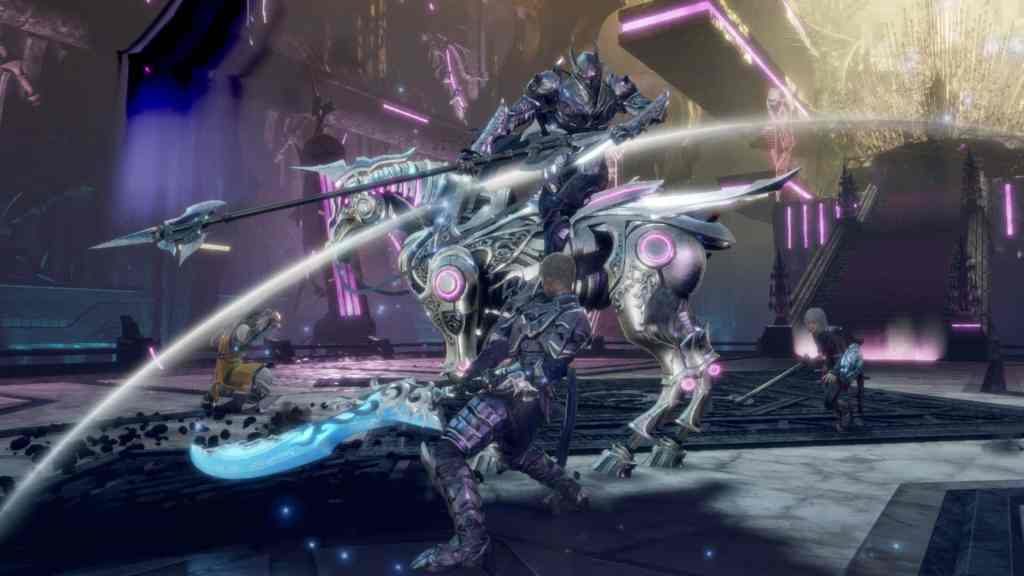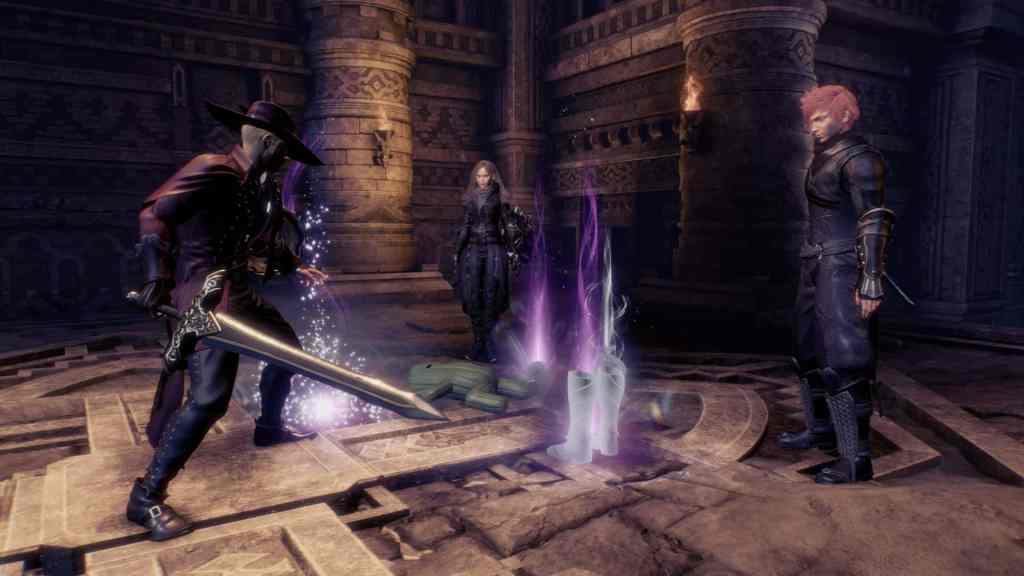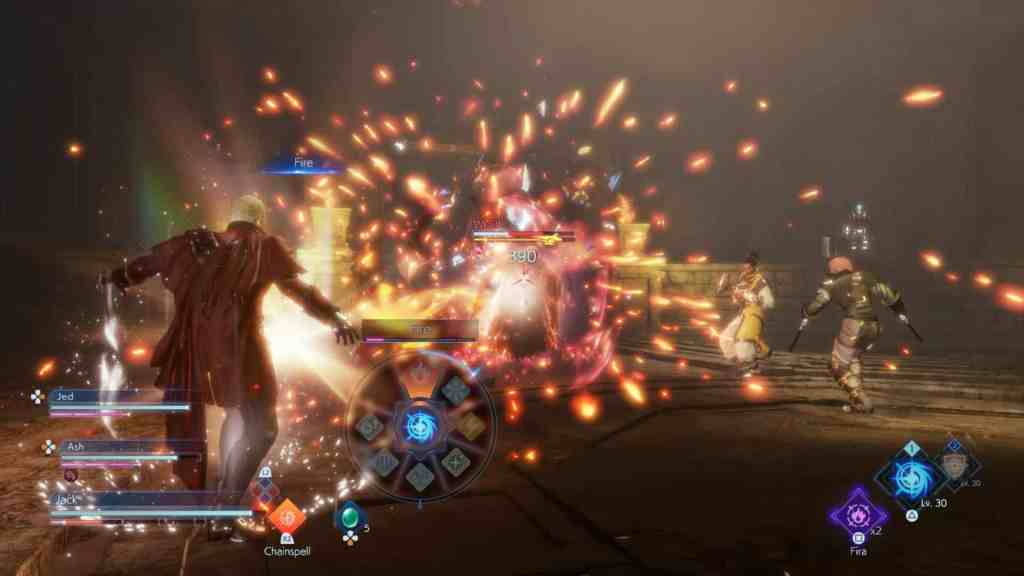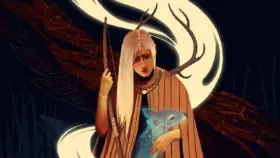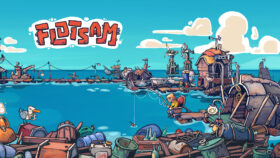[Author’s Warning: This review will contain spoilers for the entire plot of Stranger of Paradise: Final Fantasy Origin. However, we believe spoilers will likely improve your enjoyment of the narrative, rather than detract from it. Our advice is if you want to experience the story of Stranger of Paradise in the best way possible, keep reading.]
Stranger of Paradise: Final Fantasy Origin is an origin story for the original Final Fantasy. This might seem obvious, but it’s something that Stranger of Paradise tries to keep you ignorant of for most of the game.
It appears to be a reimagining on the surface – four Warriors of Light seek to cleanse the elemental crystals and defeat Chaos – but the deception begins to break mid-way through the story, when a fifth Warrior of Light shows up, cleansing the crystals only makes things worse, and our protagonists begin to regain memories of a secret civilisation manipulating the world from afar.
The story at work in Stranger of Paradise is a genuinely fascinating one, and the choice to keep the player in the dark could have been great, were it not for one little problem – Stranger of Paradise is dreadful at telling its story.
Deceptive storytelling demands trust from its audience, and Stranger of Paradise does nothing to garner that trust in its opening hours. To care about a story, there has to be some kind of ‘hook’, a point of interest that will satisfy the audience enough to become invested. The hook can be anything, though most often it takes the form of the setting, protagonist or antagonist.
This is vital, because no matter how interesting a narrative becomes, you need the audience to care enough to reach that point. Admittedly, video games can rely on gameplay to ensure players continue on, but that’s no excuse for a weak narrative if it’s designed as a key focus. Stranger of Paradise offers virtually nothing in terms of a narrative hook. Its setting of Cornelia is a generic fantasy nation, the oft-mentioned ‘Chaos’ is effectively a non-existent antagonist – and don’t get me started on grating hero Jack.
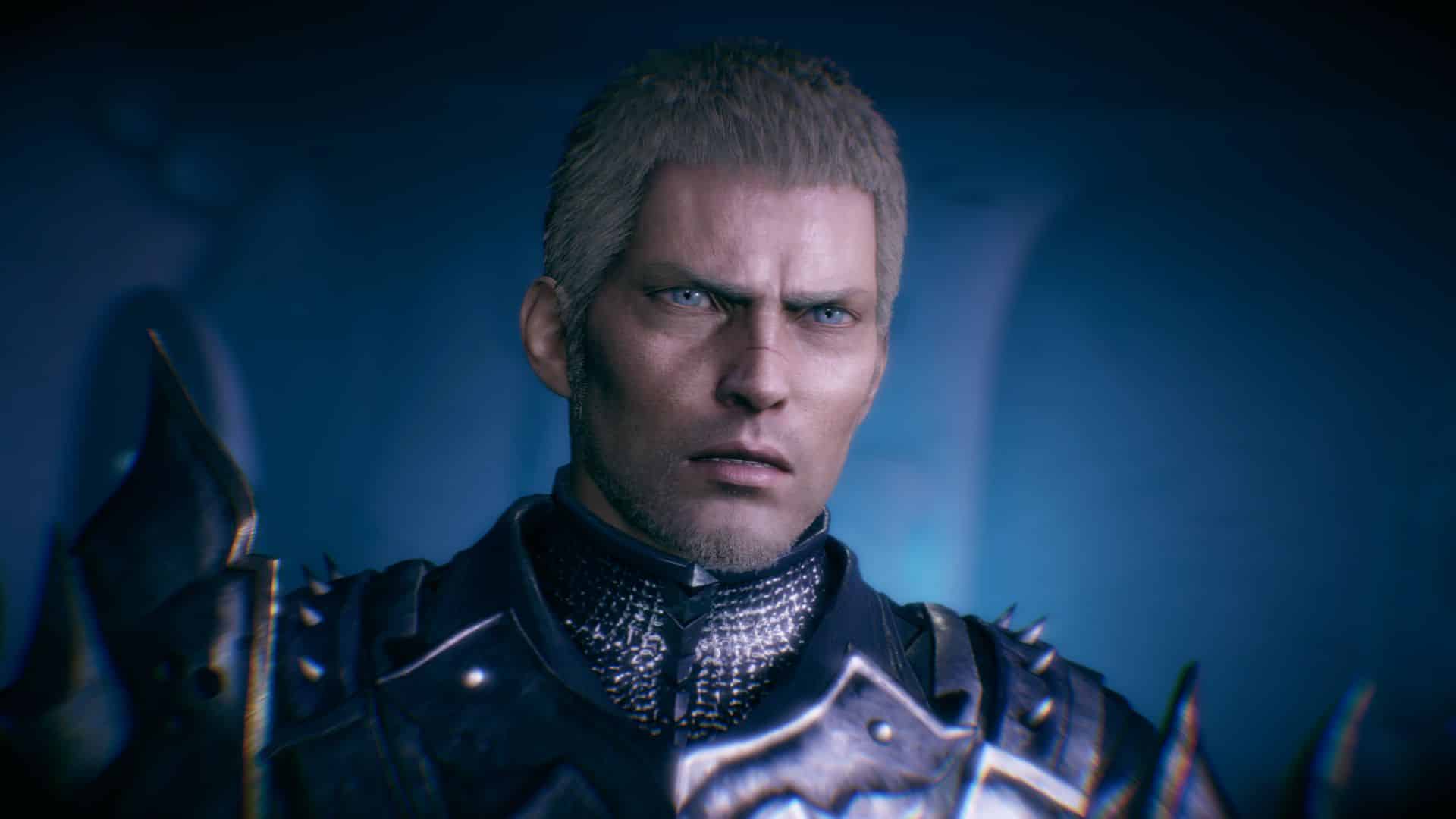
I’ve never experienced a protagonist who hates the game they’re in quite as much as Jack does. He’s violently opposed to engaging with the narrative, refuses to experience character growth, and thwarts every attempt to be perceived as likable through the lens of a sympathetic backstory.
He’s so consistently rude to his companions that it seems baffling they treat his behaviour in the same way one might smile and shake their head at a naughty kitten. It’s fine for your protagonist to be an unlikeable jackass, so long as you do something to make them tolerable, whether it be via a sympathetic backstory or giving them the potential for growth. But Jack fails to display any of these characteristics.
At the beginning of this review, I gave you a brief taste of the setting of Stranger of Paradise. That chunk of narrative – actually revealed late in the game – recontextualises everything we’re told throughout the story. Cornelia is a generic nation because it was designed to be a magical garbage disposal. Jack is a one-track mind who refuses character growth because his existence is engineered to reject his memories and kill Chaos. His companions tolerate his behaviour because they know and trust him, even if they don’t remember working together.
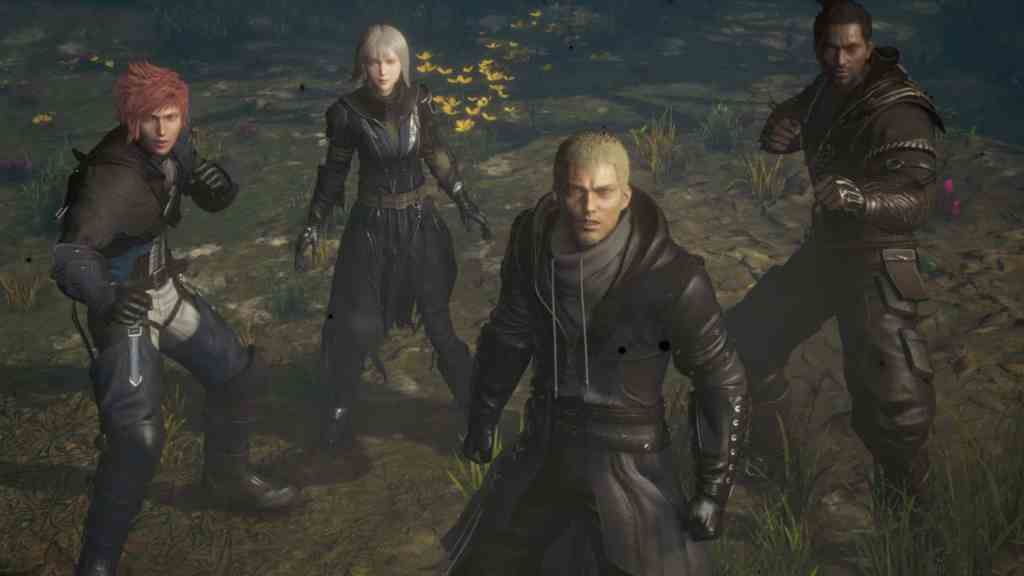
These apparent narrative weaknesses become strengths with this reveal, and they only grow moreso when you learn that Jack and his team have been plotting to overthrow the Lufenians, enacting a plan across multiple time-loops to create the one thing the Lufenians fear – Chaos. Jack was sent to kill Chaos, but his ultimate fate is to become it.
This is all pretty good stuff. Delivered competently, this is a compelling narrative in which an initially unlikeable character experiences a journey that takes him from one extreme (kill Chaos) to another (become Chaos). But instead, Stranger of Paradise is a mess of laughably awkward dialogue, disjointed cutscenes, and the blunt unpleasantness of pre-reveal Jack.
What potential there is in the story of Stranger of Paradise is betrayed every step of the way by the method it’s told, and that’s a shame. All that Stranger of Paradise has left to rely on is its combat system. Thankfully, combat is pretty great.
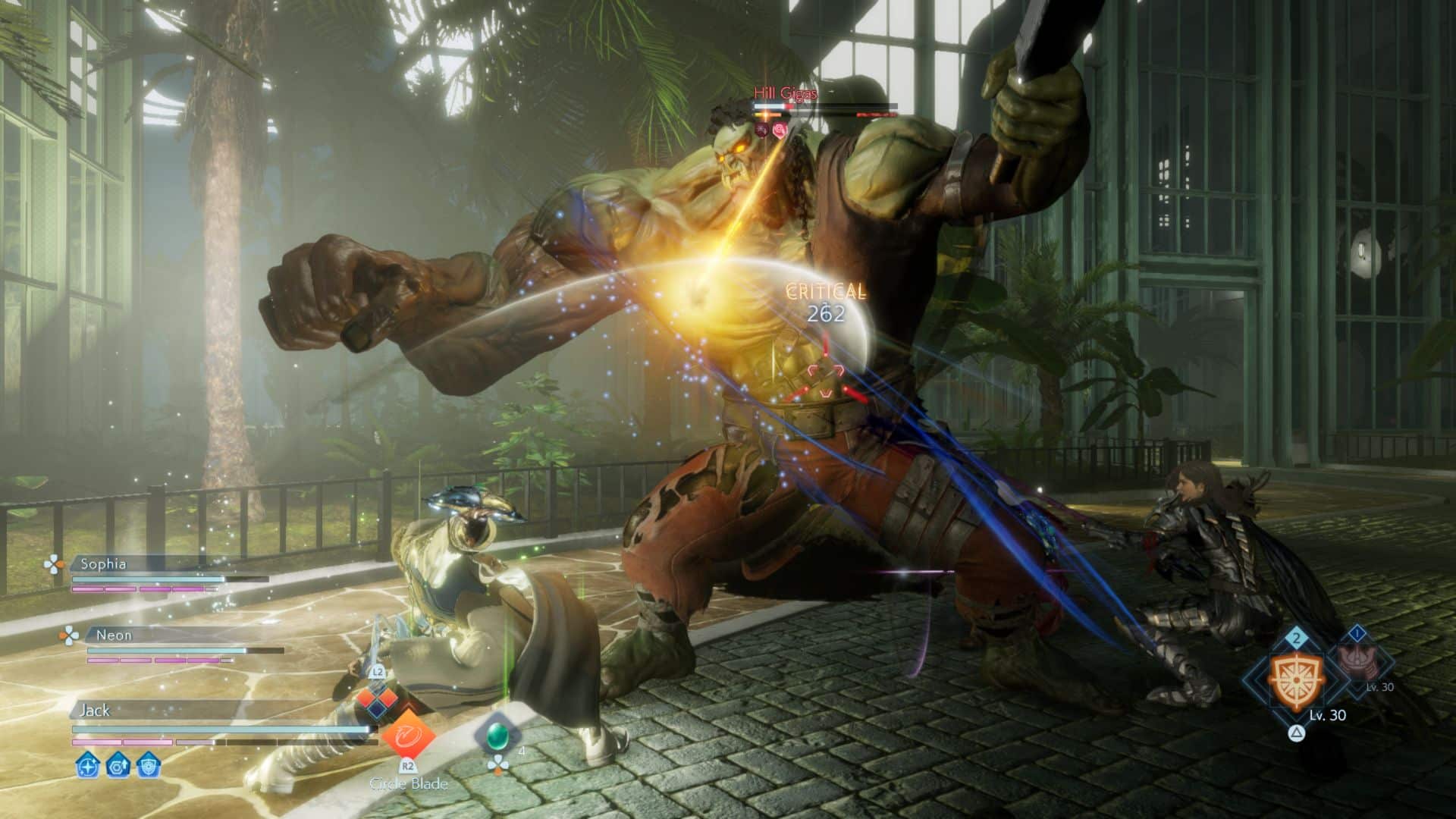
Stranger of Paradise revels in fast-paced fighting, urging you to chain combos into brutal glory-kills, absorb and redirect the spells of your enemies to decimate their elemental weaknesses, and build mana with each strike to unleash devastating finisher abilities that fill the battlefield with a shower of loot.
Out of combat, the complex array of numbers and percentages tied to the gear you collect is enough to make any min-maxxer giddy with excitement, and the extent to which you can customize your playstyle shows the effort put into ensuring combat is versatile enough to satisfy extended gameplay sessions. Hopping into one of the maps with a few co-op friends was a blast, and while I didn’t find anything I’d point to as being particularly exceptional, it was incredibly engaging, with a pace that felt just right.
I won’t pretend I wasn’t disappointed by Stranger of Paradise: Final Fantasy Origin. It had the potential to tell a fantastic story, and it absolutely failed to tell it well. The game itself still managed to charm and entertain me however, even if it meant accepting that it would never coalesce into the great game I thought it could be.
Stranger of Paradise is a game where you revel in the ridiculousness of watching a grown man look character development in the face, call ‘bullshit’, and walk away with his airpods in. But you can also revel in the mindless enjoyment of hacking waves of classic Final Fantasy monsters apart and watching loot roll in, as well as the bittersweet content of acknowledging its flaws, and taking the end result for what it is.
3 stars: ★★★
Stranger of Paradise: Final Fantasy Origin
Platforms: PlayStation 4, PlayStation 5, Xbox One, Xbox Series X|S, PC
Developer: Team Ninja, Square Enix
Publisher: Square Enix
Release Date: 10 March 2022
The PC Version of Stranger of Paradise: Final Fantasy Origins was provided and played for the purposes of this review.

